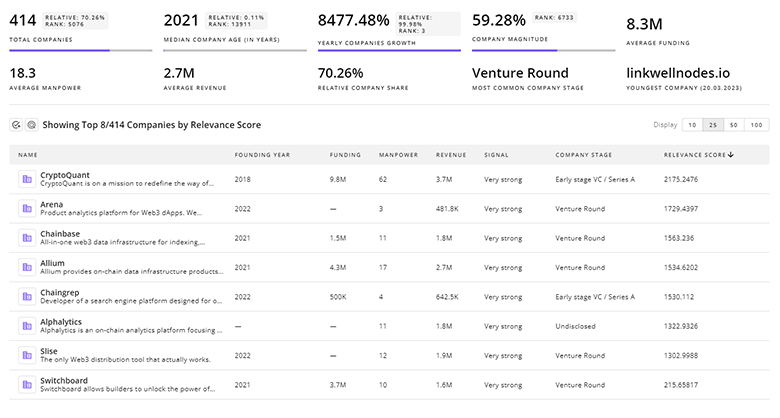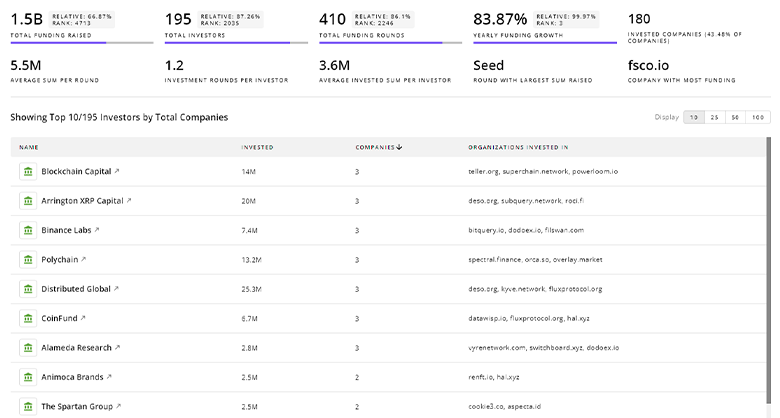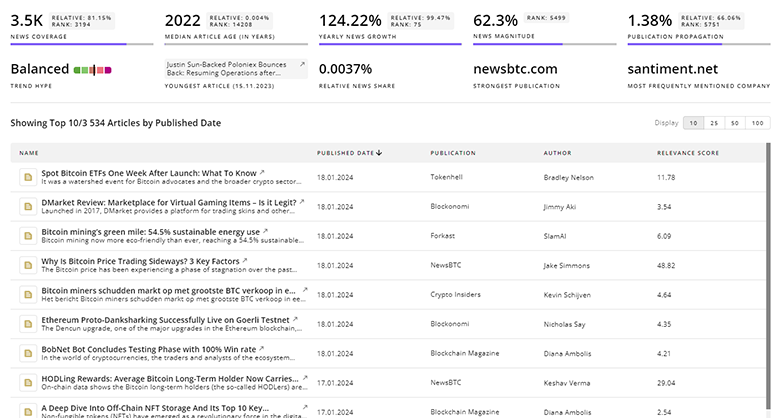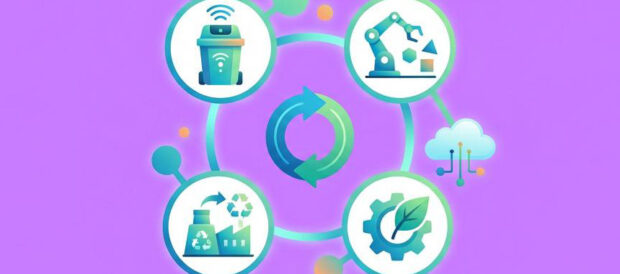
Sustainable Urbanism Report
: Analysis on the Market, Trends, and TechnologiesThe market is shifting toward measurable, deployable solutions: there are 4,874 companies active in sustainable urbanism and $41.74B in total funding captured by that community, while news coverage rose 154.95% over five years—evidence that public attention and capital are concentrating on operational, data-driven interventions rather than symbolic design alone. These dynamics coincide with projections that sustainable infrastructure investment will expand rapidly (market forecasts show USD 58.55bn in 2024 growing toward USD 405.08bn by 2034), which together signal a near-term commercial window for companies that can prove measured carbon, water and resilience outcomes using digital monitoring and modular hardware Sustainable Infrastructure Market Size and Forecast 2025 to 2034.
21 days ago, we last updated this report. Notice something that’s not right? Let’s fix it together.
Topic Dominance Index of Sustainable Urbanism
To gauge the influence of Sustainable Urbanism within the technological landscape, the Dominance Index analyzes trends from published articles, newly established companies, and global search activity
Key Activities and Applications
- Integrated water resilience — designing and deploying sponge city and stormwater capture systems that couple green infrastructure with engineered subsurface components to reduce flood risk and retain urban runoff; this activity aligns with heavy patenting in green infrastructure and widespread WSUD practice.
- Existing building decarbonization — retrofits, envelope upgrades and performance verification for large portfolios to deliver rapid carbon reductions and compliance with tightening municipal targets; the push to measure operational carbon drives demand for digital verification and retrofit execution partners Cities and Sustainability: A New Agenda for Urban Living.
- Modular, low-embodied-carbon construction — off-site mass timber, prefabrication and recycled composite panels shorten timelines and lower embodied emissions; investor interest favours standardized systems that scale across portfolios Sustainable Development for Mass Urbanization.
- Street-level renewable and micro-grid provisioning — distributed solar, BIPV and energy-independent urban furniture that supports micromobility and public services without immediate grid upgrades.
- Participatory green infrastructure delivery — community co-design, youth engagement and 4D visualization to secure social license and reduce the risk of green gentrification and project delays Consensus on participatory planning.
Emergent Trends and Core Insights
- Performance verification as product — clients now buy measured outcomes (kWh saved, litres captured, UHVI reduction), not plans; this creates recurring-revenue opportunities for monitoring and certification services while retrofits become the highest-value interventions.
- Convergence of modular hardware and city data — utility model filings show a surge in standardized, quickly deployable components; combining modular physical units with embedded sensors creates predictable maintenance cycles and lowers OPEX for municipalities Patent landscape on green infrastructure filings.
- Microclimate analytics drive underwriting and incentives — high-resolution heat and flood mapping enable private insurers and financiers to offer premium discounts or concessional capital for verified adaptation measures, creating alternative funding pathways outside municipal budgets Smart Cities Forecast Report 2025.
- Circular materials enter construction supply chains — advanced material recovery (high-value reclaimed timber, waste-to-feedstock) moves beyond demonstration projects; this reduces embodied carbon and creates local supply opportunities that shorten procurement cycles.
- Policy-conditioned financing scales interventions — municipalities that tie subsidies to verifiable performance catalyze private capital into street upgrades, rooftop renewables and micro-grids more quickly than subsidy-agnostic grant programs.
Technologies and Methodologies
- Digital twins + lifecycle monitoring — continuous linking of BIM, sensor streams and operational data to quantify energy, water and material performance across an asset's life cycle and to trigger targeted maintenance.
- GeoAI for microclimate and resilience planning — high-resolution heat island, flood risk and biodiversity mapping enable targeted interventions that maximize risk reduction per dollar invested.
- Prefabrication and engineered timber systems — mass timber, CLT panels and factory-assembled modules lower embodied carbon and compress construction schedules while enabling sensor integration at manufacture Intelligent City mass timber activity.
- AI-driven demand management for micro-grids and EV fleets — predictive controllers that coordinate PV, storage and load (including e-bikes and charging hubs) to minimize peak demand and avoid distribution upgrades.
- Participatory digital design platforms — augmented reality and 4D co-design tools that embed community inputs early, speeding approvals and reducing litigation risk.
Sustainable Urbanism Funding
A total of 467 Sustainable Urbanism companies have received funding.
Overall, Sustainable Urbanism companies have raised $41.7B.
Companies within the Sustainable Urbanism domain have secured capital from 1.5K funding rounds.
The chart shows the funding trendline of Sustainable Urbanism companies over the last 5 years
Sustainable Urbanism Companies
- SEEDiA.city — SEEDiA deploys off-grid solar urban furniture (benches, kiosks, bus shelters) that provide charging, connectivity and sensors; the company operates in 25+ countries and sells an autonomous solar charging rental station for e-bikes that reduces grid dependency while monetizing public right-of-way assets. Their model converts street furniture into distributed renewable infrastructure that supports micromobility and citizen engagement, making them an immediate fit for compact retrofit programs that lack grid upgrades.
- Urbanstrong — Urbanstrong offers end-to-end design, build and maintenance for green roofs, living walls and solar-integrated green systems in the Northeastern United States. Their single-vendor delivery reduces coordination friction on retrofit projects and allows owners to link installation to measured energy and occupant-health outcomes, which accelerates procurement for property managers targeting carbon compliance.
- Waterstudio.NL — Waterstudio pioneers floating urban development and modular water-based habitats that respond to sea-level risk and waterfront land scarcity. Their approach offers a flexible pathway to add high-density housing and infrastructure on water, combining relocatable foundations with circular material thinking—an option for coastal cities facing chronic land constraints.
- NextGenUrban — NextGenUrban packages neighborhood-scale modular infrastructure as a service, delivering closed-loop water, energy and waste systems together with housing under a subscription model. This one-stop operational model appeals to developers and residents who want immediate access to zero-waste services without managing multiple vendors, and it directly targets measurable resource independence at the block scale.
- Wild Streets — Wild Streets provides a 4D participatory design tool for green urban infrastructure that centers co-creation to secure social license and long-term stewardship. Its community-first toolkit reduces approval risk and increases local adoption rates for urban greening projects, which helps projects reach implemented performance targets faster.
Get detailed analytics and profiles on 4.9K companies driving change in Sustainable Urbanism, enabling you to make informed strategic decisions.

4.9K Sustainable Urbanism Companies
Discover Sustainable Urbanism Companies, their Funding, Manpower, Revenues, Stages, and much more
Sustainable Urbanism Investors
TrendFeedr’s Investors tool provides an extensive overview of 1.4K Sustainable Urbanism investors and their activities. By analyzing funding rounds and market trends, this tool equips you with the knowledge to make strategic investment decisions in the Sustainable Urbanism sector.

1.4K Sustainable Urbanism Investors
Discover Sustainable Urbanism Investors, Funding Rounds, Invested Amounts, and Funding Growth
Sustainable Urbanism News
Explore the evolution and current state of Sustainable Urbanism with TrendFeedr’s News feature. Access 2.6K Sustainable Urbanism articles that provide comprehensive insights into market trends and technological advancements.

2.6K Sustainable Urbanism News Articles
Discover Latest Sustainable Urbanism Articles, News Magnitude, Publication Propagation, Yearly Growth, and Strongest Publications
Executive Summary
Sustainable urbanism is moving from descriptive commitments to outcome-oriented delivery. Market signals—rising media coverage, large aggregate funding, and forecasted growth in sustainable infrastructure—favor firms that can combine modular physical systems with continuous measurement and community engagement. Business strategy should prioritize asset-level proof of performance, scalable prefabricated components that embed sensing, and financing structures tied to verified climate and social outcomes. Firms and investors that sequence product development to deliver short-term operational savings and medium-term resilience proofs will convert municipal and private capital into repeatable programs across cities.
We're looking to collaborate with knowledgeable insiders to enhance our analysis of trends and tech. Join us!






